Italy's election: How the economy is performing
- Published
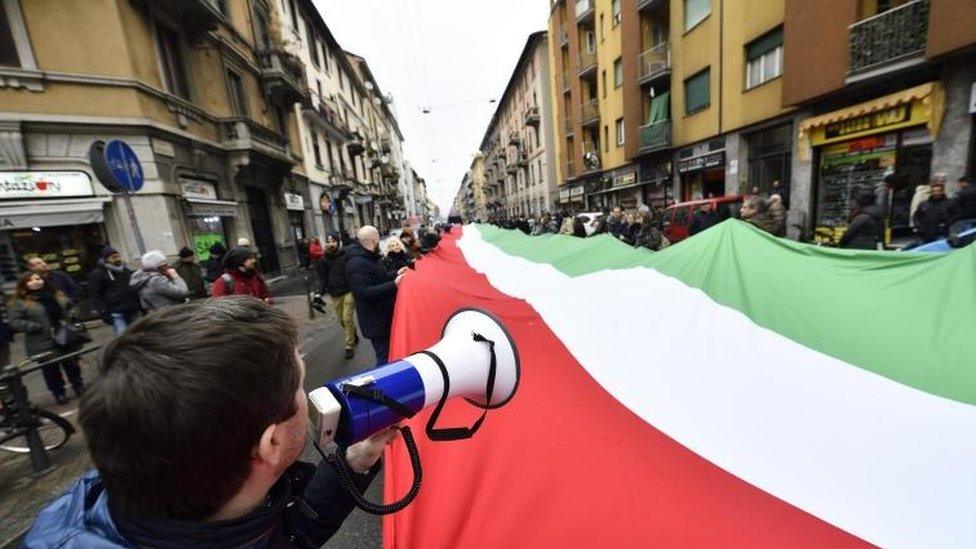
Italy goes to the polls on Sunday in one of its most contentious votes in years.
The economy has become a key battleground for the main parties' campaigns.
Italy's economy has started to expand once again, but is still one of the worst performers of the countries in the eurozone.
The election battle is proving to be very close, with the latest polls suggesting no political coalition will win a clear majority.
The parties are battling to prove they can take Italy's economy, industry and job market back to pre-crisis levels.
However, despite all the pre-election rhetoric, few Italians can really see what has improved since the economic crisis. The road to full recovery has been much harder than many expected.
Slow growth
Economic growth - in terms of GDP per head - has been picking up since 2014. However, the pace of growth appears weak compared with other major European economies.
Forecasts suggest it would take between five and six years to achieve the rates seen in 2007. Meanwhile some other eurozone nations are experiencing their best growth in the past decade.
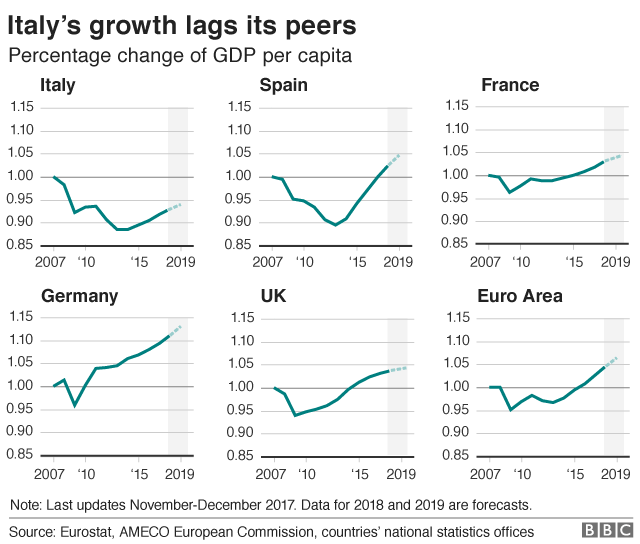
High debt
Italian debt is now the second worst in Europe after Greece and has reached 132% of GDP.
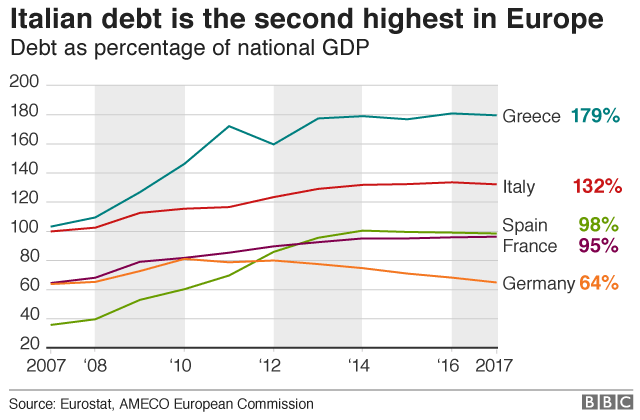
'Made in Italy'
In the field of fashion, food and cars, Italy has had a reputation for excellence and it has exported these all over the world. The "Made in Italy" brand has been rejuvenated thanks to an increase in exports and international interest.
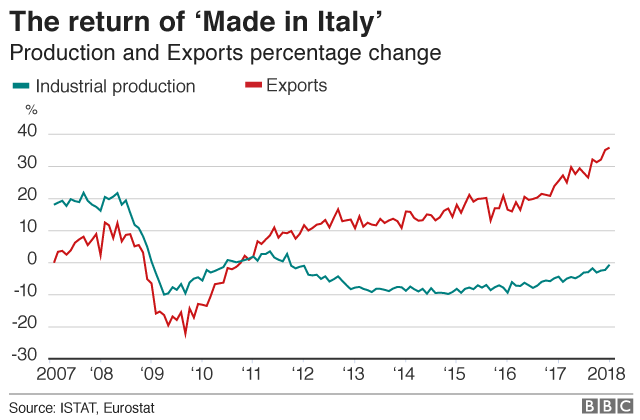
Part-time jobs
In 2014, Matteo Renzi's Democratic Party started its job reforms, which have been credited with creating almost one million jobs. However, the latest Italian Institute of Statistics (ISTAT) figures show that nearly 60% of them are part-time roles.

Unemployment
The level of part-time work means much lower job security compared with other European countries.
In Italy, this seems to have deepened the problem of unemployment - particularly in the southern regions where jobless rates are as high as 29%.
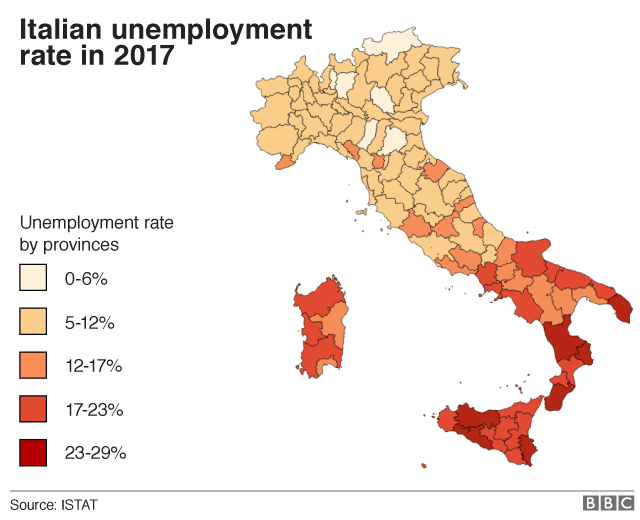
Increasing poverty
Although Italy presents itself as one of the top three European economies, high rates of unemployment have caused a steep rise in poverty.
The number of Italians at risk of poverty rose from three million in 2006 to 18 million - nearly a third of the entire population - in 2016.
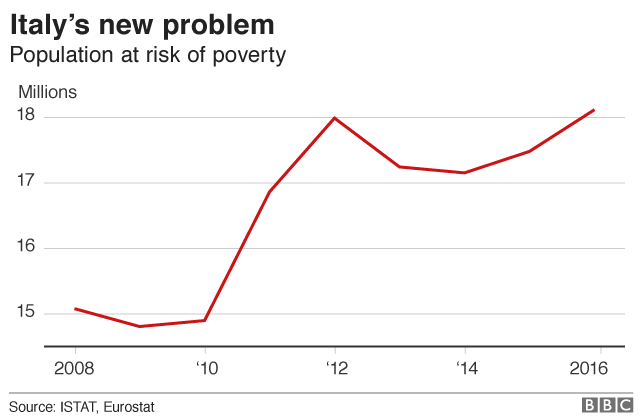
Battle against taxes
The top rate of income tax in Italy is one of the highest in Europe, well above the 39% average for top rates across the 28-members of the Union.
That's why Silvio Berlusconi has started his own personal battle against high taxation levels and has promised to create a 23% "Flat Tax" for everyone
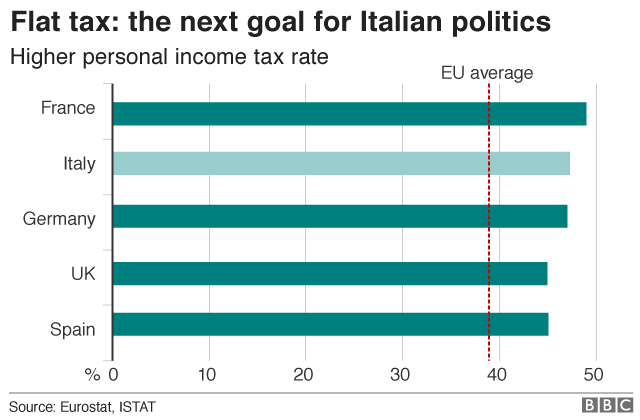
- Published3 March 2018
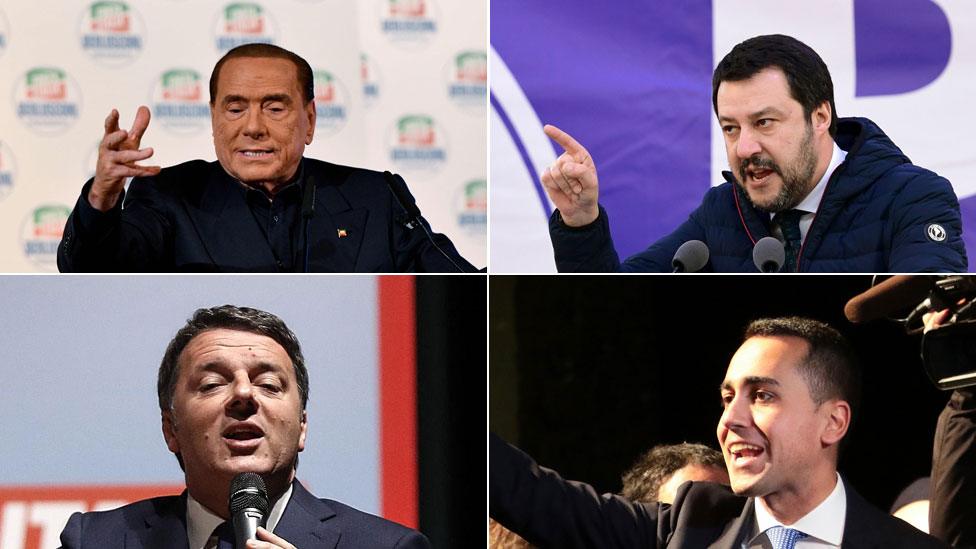
- Published26 February 2018
